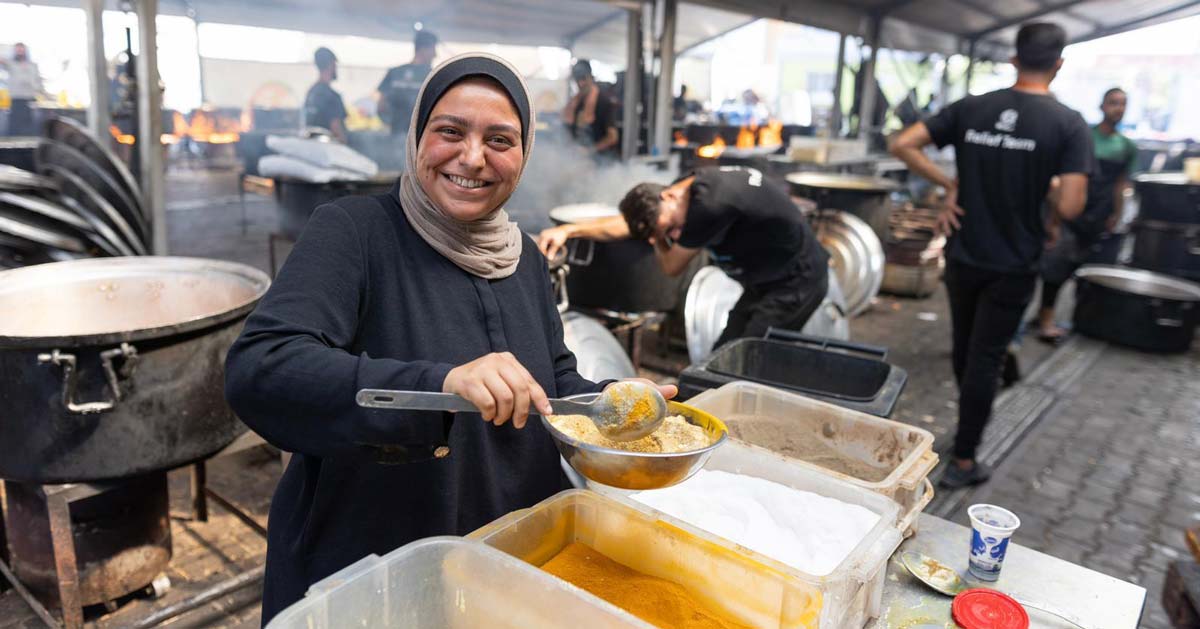In the wake of an ongoing humanitarian crisis in Israel and the Gaza Strip, both Jewish and Muslim communities worry about a rise of hate crimes around the globe.
Tragically, this weekend, Wadea Al-Fayoume, a six-year-old boy in Chicago was reportedly killed by his landlord for being Palestinian and Muslim.
Al-Fayoume and his mother, Hanan Shaheen, were stabbed in their home by their landlord, who, according to the Will County sheriff’s office, was motivated by hate for Muslims amid the fighting in Israel and Gaza.
The landlord, Joseph M. Czuba was charged with first-degree murder, attempted first-degree murder, two counts of hate crimes, and aggravated battery with a deadly weapon, according to NPR.
Shaheen is currently recovering in the hospital from serious injuries.
Attorney General Merrick Garland said The Justice Department opened a hate crime investigation into the attack.
As a way to bridge divides and show solidarity, a group of Chicago-area rabbis attended the funeral of Al-Fayoume.
Skokie Valley Agudath Jacob Synagogue’s Rabbi Ari Hart was one of the rabbis present at the service. He wrote about the experience in a Facebook post, sharing that he spoke with the Imam of the mosque where the funeral was held, as well as Al-Fayoume’s father.
“We witnessed the pain. We expressed our shock and condemnation of the attack. We wept,” Rabbi Hart writes.
Also in his post, Rabbi Hart shared: “The Jerusalem Talmud teaches that the Jewish people are obligated to comfort the mourners of our people and of all people because of the darchei shalom — the paths of peace.”
“The murder of a six year old because of his faith and identity is not complicated. It is a heinous crime. And that’s why we went today.”
Rabbi Hart has a reputation for other acts of solidarity among his community. Three years ago, he started a community program called “Solu,” stemming from a word from the Haftorah meaning to make a path.
Solu aims to use an interfaith approach to do more good during a three-week period of activism and programming every year.
The first Solu program formed alongside African-American Christians to host a book drive and build furniture for families in need.
Rabbi Hart’s second Solu program connected the synagogue’s community to The Rohingya, a Muslim minority group from Burma. Rabbi Hart helped organize English language and citizenship classes, daycare, a youth club, a dinner of traditional foods, and more.
Outside of Solu, Rabbi Hart has partnered with communities combating gun violence, led anti-hate vigils, and advocated for women, LGBTQ+ and disabled members of his community.
“We have these ideals that we’re trying to manifest in the world,” Rabbi Hart told nonprofit news outlet The Forward.
“Judaism is not just something relegated to prayer halls, but something that needs to be in the streets. For people with deep Torah values and a desire to make the world a better place beyond communal boundaries, we create a path and invite them to walk it with us.”
Arab-Jewish solidarity has inspired a sense of hope in other parts of the world, as well.
On October 12, Muslim women led an interfaith vigil for victims of Hamas’ attacks in Israel outside of the White House. Leaders of the American Muslim & Multifaith Women’s Empowerment Council gathered with other diverse faith groups to mourn and mobilize against hate.
“We cannot let extremists hijack defame the word of God in the name of hate and atrocity, Anila Ali, AMWEC’s President, told Forbes.
In Israel, multifaith organizers have also been working together to help protect people of all backgrounds after the October 7 attacks.
In Jaffa, a city south of Tel Aviv, activists in WhatsApp groups developed a joint Arab-Jewish civil guard (unarmed) that alerts authorities if violence breaks out. The groups now include over 1,000 people, according to The Guardian.
Volunteers have also teamed up to search for missing Israelis, cooked meals for families who have been displaced, and more.
Abed, a team member with nonprofit Standing Together, told The Guardian: “I hope the solidarity we have built between different communities can endure against such a polarizing moment.”





